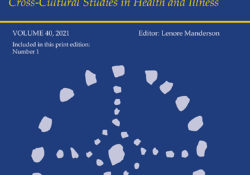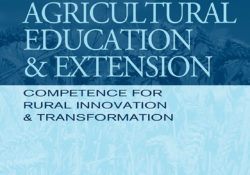
tandfonline.com har udgivet en rapport under søgningen “Teacher Education Mathematics”: Abstract Abstract Contemporary socio-technological shifts within global societies indicate that the preferences and values of a converging, well-informed and digitally connected society have shifted towards a movement based on sustainability and healthy and environmentally friendly common values. The effect of artificial intelligence has changed the nature of marketing and communication between firms and markets. Food marketers need to adjust to this new situation and integrate proven interdisciplinary theoretical frameworks, as these approaches can be aligned to address this situation. Due to the limitations of traditional-marketing-theory, the field has not captured this gap by addressing emerging trends effectively. We address these new developments by introducing the design of the Weltanschauung model, which is based on marketing within the dimensions of designing… Continue Reading →
Like this:
Like Loading...
tandfonline.com har udgivet en rapport under søgningen “Teacher Education Mathematics”: ABSTRACT ABSTRACT Nutrition policymakers frequently treat their knowledge of nutrition as acultural and universal. We analyze food guidelines in Mexico and Guatemala to draw attention to embedded, but often unrecognized, cultural values of standardization and individual responsibility. We suggest that nutrition policy would be improved by attending to the cultural values within nutrition science, and that nutrition guidelines should attend not only to other people’s cultures but to what we are calling “cultures of nutrition.” We conclude by offering an example of an adaptive approach to policy-making that may be useful for handling situations where many different cultures of nutrition collide. Video Abstract Read the transcript Watch the video on Vimeo Video Abstract Read the transcript Watch the video on… Continue Reading →
Like this:
Like Loading...
tandfonline.com har udgivet en rapport under søgningen “Teacher Education Mathematics”: ABSTRACT ABSTRACT This study examines the role of school food education and school food culture in England and their potential to support pupils’ capabilities to adopt health protecting and promoting behaviours. Drawing on Amartya Sen’s capability approach, and Susan Michie’s COM-B model, the research was conducted for the Food Education Learning Landscape project. Methods included national surveys of food teachers (N = 1503), senior school leaders and class teachers (N = 684), parents and carers (N = 573) and a mixed methods study of pupils in primary and secondary schools (N = 240). Findings indicate that adequate curriculum time, teaching facilities, budget, class size, subject status and teacher training are key factors for successful curriculum implementation. Monitoring and evaluation of school food provision and development of wider health… Continue Reading →
Like this:
Like Loading...
tandfonline.com har udgivet en rapport under søgningen “Teacher Education Mathematics”: Link til kilde
Like this:
Like Loading...
eric.ed.gov har udgivet: Strengthening knowledge and skills in mathematics is critically important to preparing the next generation of innovators, problem solvers, and interdisciplinary thinkers. School-based agricultural education offers a valuable context to co-develop mathematics knowledge and skills alongside knowledge and skills in agriculture, food, and natural resources. The current study explored the role of school-based agricultural education teachers in facilitating interdisciplinary agriculture, food, natural resources, and mathematics learning experiences. Findings suggest teachers possessed positive attitudes, supportive subjective norms, high levels of perceived behavioral control, and moderate to high perceptions of mathematics knowledge. Additionally, teachers intended to teach mathematics content in an average of 24.51% of agriculture, food, and natural resources curriculum. However, in modeling the intentions of school-based agricultural education teachers to teach math, the combination of attitude toward the… Continue Reading →
Like this:
Like Loading...



